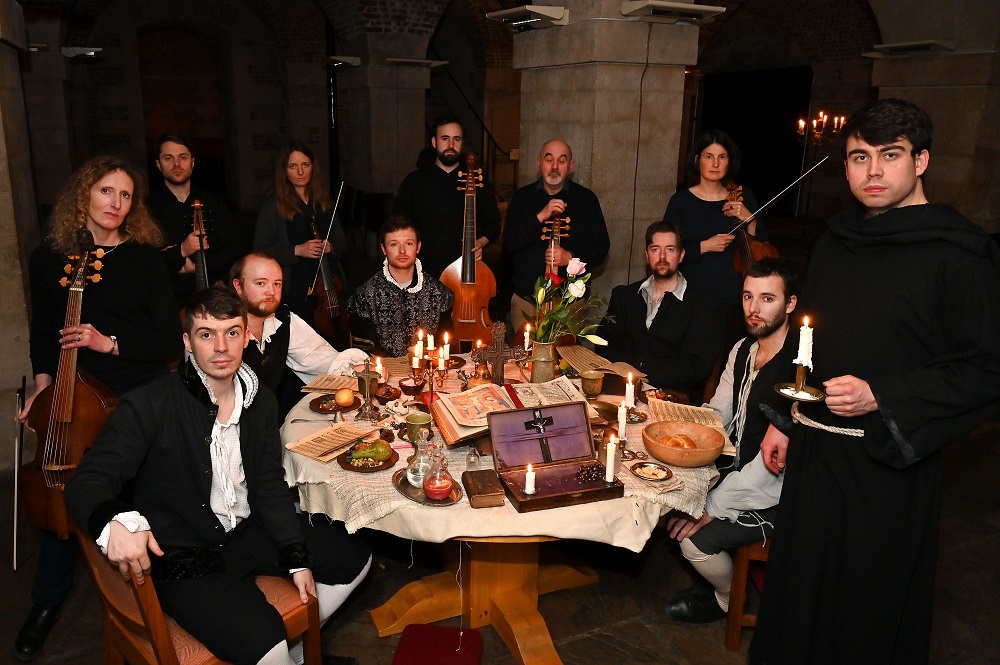It’s dangerous to claim a sense of absolute rightness about a musical performance; that could mean no more than responding to an interpretation which happens to chime with your own subjective expectations. Yet I’m happy to stick my neck out and say that the partnership of septuagenarian pianist Elisabeth Leonskaja with the young Staatskapelle Quartet of Berlin felt absolutely right in works by Brahms that cry out in every bar for authentic musicianship (★★★★★).
Maybe that’s true of all the great chamber works. But Brahms draws on a unique wellspring of original melody and rhythmic ingenuity in profoundly logical order. That may be profuse, as in the F minor Piano Quintet which rounded off two concerts of infinite riches and the A major Piano Quartet, the Second, which stunned us all with its invention in this team’s previous Brahms at the Wigmore, or relatively spare, in the case of the Third, the C minor, which had the fullest focus in this event’s first half. The great pianist seemed happy and serene with her relatively modest role here; the limelight fell above all on cellist Claudius Popp in one of the greatest of those original melodies, soaring in the Andante.
As so often with Brahms, it would be hard to guess the work’s place in his output: in this case, an inspiration of the 1850s, imbued with the muse-like influence of Clara Schumann, reworked in 1873. Rightness here is partly a question of settling on natural tempi – especially fine in the Allegro comodo of the finale.
All-Brahms programmes never seem to fail in the right hands, and the contrast with the Piano Quintet was all we needed. The ideas and the imagery – wood-magic especially in the way Leonskaja handled the second theme of the opening Allegro non troppo – tumbled forth, without haste, and simply rolling in the way this pianist knows how to do in the laid-back originality of the Andante, un poco adagio. Explosiveness was kept in check until the massive optimisms of the big-boned Scherzo and the turbulences of the finale. From their sheer physical energy, you’d be inclined to think of all five players as in their 20s if you simply listened. Poetic subtlety returned in the encore, the central "Dumka" movement of Dvořák's Second Piano Quintet. Music-making like this really does spoil one for everything else.  Not that there were any comparisons to be made with the one-off novelty of “Byrd Revealed” in the crypt of St Martin-in-the-Fields the previous evening, masterminded by Bill Barclay of Concert Theatre Works (pictured above by Mark Allan: Fretwork and The Gesualdo Six; ★★★). This was a bold way to mark the 400th anniversary of the British Catholic composer’s death. Context was minimal for those of us who had our tickets taken five minutes before the start: we were told we could walk around at will, observe the Tudorbethan objects on the main table, steer clear of the candles and not touch the players or singers, be aware that there would be total darkness for one minute. But because we apparently missed a briefing from the singers and weren't pointed in the direction of the specially installed gallery, we could only guess at the sequence beyond the Five-Part Mass and conjecture that the scary banging which broke into the last bars of the Five-Part Mass’s Agnus Dei represented persecution of Catholics.
Not that there were any comparisons to be made with the one-off novelty of “Byrd Revealed” in the crypt of St Martin-in-the-Fields the previous evening, masterminded by Bill Barclay of Concert Theatre Works (pictured above by Mark Allan: Fretwork and The Gesualdo Six; ★★★). This was a bold way to mark the 400th anniversary of the British Catholic composer’s death. Context was minimal for those of us who had our tickets taken five minutes before the start: we were told we could walk around at will, observe the Tudorbethan objects on the main table, steer clear of the candles and not touch the players or singers, be aware that there would be total darkness for one minute. But because we apparently missed a briefing from the singers and weren't pointed in the direction of the specially installed gallery, we could only guess at the sequence beyond the Five-Part Mass and conjecture that the scary banging which broke into the last bars of the Five-Part Mass’s Agnus Dei represented persecution of Catholics.
Much the most successful number was what came out of this, Byrd’s elegy on the death of his master, Thomas Tallis, “Ye Sacred Muses”, exquisitely sung by the Gesualdo Six countertenor Guy James with the players of Fretwork. They were impeccable throughout, but the voices, ruthlessly exposed in a dry acoustic, proved variable in technique (nothing that can’t be sorted with a bit more training on the part of one of them). The full mass having been punctuated with instrumental fantasias that allowed a modicum of dance, we now – I learn in retrospect – moved into “Communion” with “Infelix ego” and the familiar “Haec dies”; now I understand why we were given bread and tomato soup (very welcome). Still, the overall experience was less than the sum of its parts. There’s time for fine-tuning of context as the event goes on tour.













Add comment